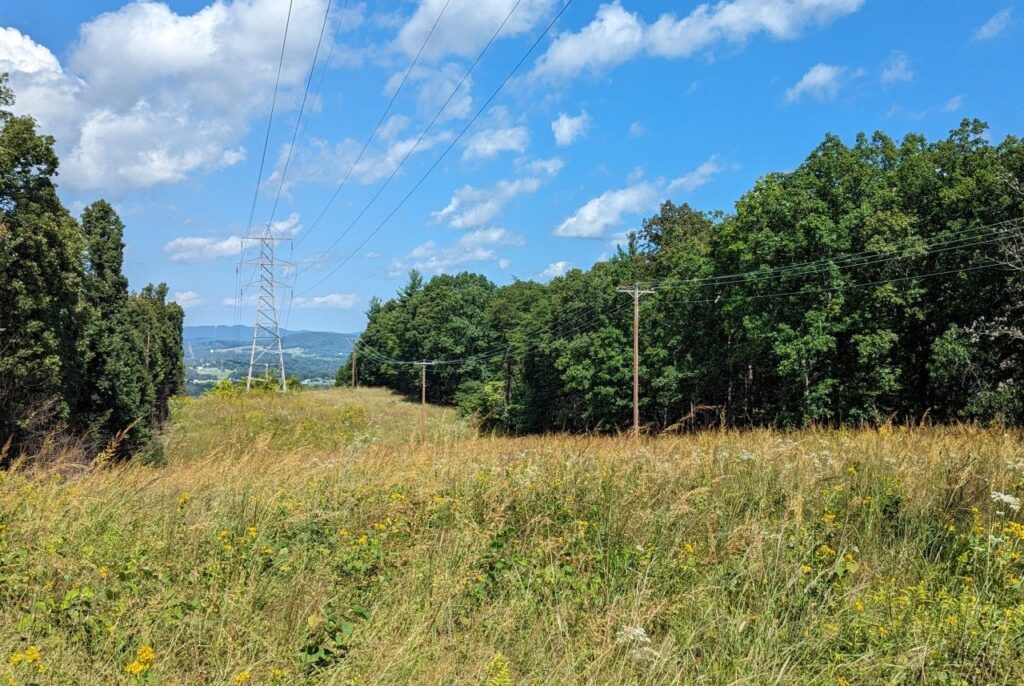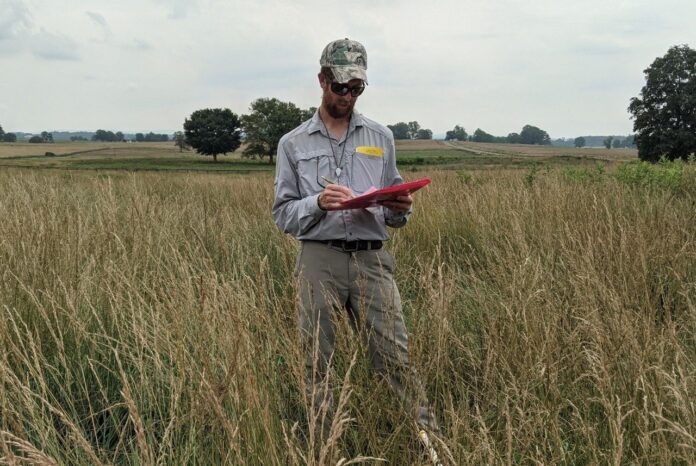Last year, the National Academies of Sciences, Engineering, and Medicine sounded the alarm: There aren’t enough native seeds to restore damaged U.S. lands.
A project led by Virginia Tech researchers aims to replenish and maintain a sustainable pipeline of native seeds for the southern portion of Virginia, also known as Southside, by partnering with underserved farmers from the region. The project is backed by a grant of nearly $700,000 from the Natural Resources Conservation Service’s Equal Conservation Opportunities program, which aims to expand conservation assistance to farmers who are new to farming, low income, socially disadvantaged, or military veterans. The Natural Resources Conservation Service is part of the U.S. Department of Agriculture.
“We have a great opportunity here to conserve Southside’s unique natural heritage while also facilitating new economic opportunities for historically underserved farmers and making new discoveries in applied ecology,” said J. Leighton Reid, assistant professor of ecological restoration in the College of Agriculture and Life Sciences’ School of Plant and Environmental Sciences, who is leading the project. “This effort is inspired by similar native seed projects in Arkansas and Northern Virginia. We hope to build on lessons learned from those projects to deliver a successful research and Extension program on the Southern Piedmont.”
Reid is partnering with Ryan Klopf, natural areas science coordinator for the Virginia Natural Heritage Program and affiliated research faculty in the School of Plant and Environmental Sciences; Arash Rashed, director of the Southern Piedmont Agricultural Research and Extension Center; and Stella Schons, assistant professor in the College of Natural Resources and Environment’s Department of Forest Resources and Environmental Conservation. Schons and Reid are part of the Fralin Life Sciences Institute’s Global Change Center and its Restoration Ecology Working Group, an interdisciplinary faculty team working to improve ecological restoration outcomes.
The team will identify shortfalls in seed availability and the economic barriers that Southside farmers face in getting started growing native seed. They also plan to partner with historically underserved Southside producers to create a native seed demonstration area at the Southern Piedmont Agricultural Research and Extension Center. Ultimately, their goal is to build the region’s potential to sustainably produce native seeds while providing new economic opportunities for underserved growers and tobacco farmers looking to diversify their crops.
“Living up to Virginia Tech’s Ut Prosim motto, we are delighted to have the opportunity to serve our underserved communities in rural Southside Virginia by delivering economic knowledge and supporting the commercialization of native seed production in the region,” Rashed said. “We are committed to introducing native seed production and markets to maximize profitability in small farms and improve the lives of our underserved citizens.”

Native seeds are important in sustaining the health of natural ecosystems. They have evolved with the local climates, soils, and other organisms and are better integrated into their environment than non-native species from other regions. They also serve as crucial habitats and food sources for local wildlife.
“The problem with non-native plants, like tall fescue grass, is that they do not have long, coevolutionary histories with our native animals,” Reid said. “As a result, most non-native plants are inedible to our native insects. One entomologist refers to non-native plants as ‘ecological plastic’ for this reason.”
As solar farms proliferate in Virginia, the commonwealth is encouraging revegetation of the sites with native and pollinator-friendly plants. Some localities have mandated it.
“The Southern Piedmont is ground zero for utility scale solar plant development,” Reid said. “If there are not enough native seeds to meet the needs of these developers, they will have to source plant materials from outside of the state or, in the worst-case scenario, from plants that are not even native to North America.”
If the team is successful in building a native seed pipeline, its members hope to expand the project and contribute to the federal Seeds of Success program — a national seed collection program led by the U.S. Bureau of Land Management to address the need for native plant materials across the country.
“I think our team could contribute meaningfully to that mission,” Reid said. “I would love to help local communities reclaim this connection to wild nature.”
By Marya Barlow

